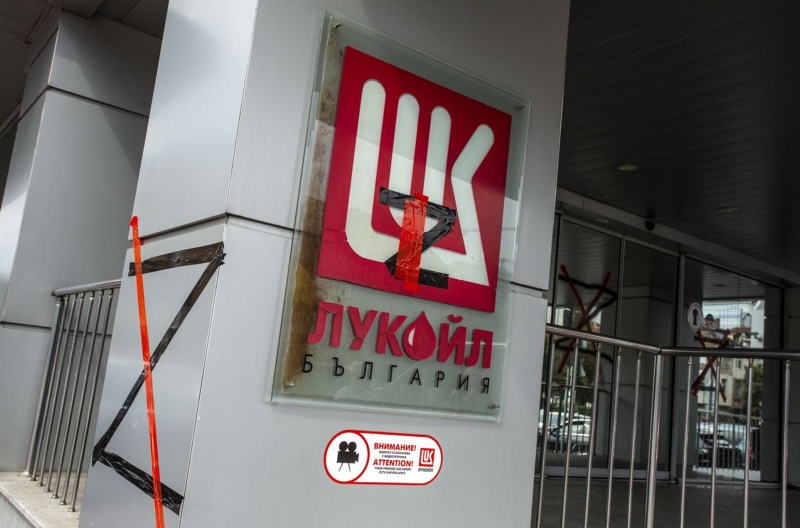Photo: Getty Images
Bulgarian President Rumen Radev has vetoed a bill passed by parliament that would have established new rules for the sale of assets belonging to Russian oil company Lukoil, which recently fell under U.S. sanctions.
The Bulgarian legislation required that any such transactions be approved by the State Agency for National Security (SANS) and the Council of Ministers. Without that oversight, it will now be easier for companies linked to Russia to buy Lukoil’s assets.
Radev said he vetoed the measure because it “places the Council of Ministers in functional and operational dependence on the security service,” which he said violates the constitution. He also argued that the bill breaches the principle of equality before the law, as it is effectively directed at a single company — Lukoil.
On Oct. 22, the U.S. Treasury Department’s Office of Foreign Assets Control (OFAC) added Lukoil and Rosneft to its sanctions list, saying they “fund the Kremlin’s war machine.” The sanctions also targeted 34 subsidiaries and any entity more than 50% owned by either company.
Two days later, on Oct. 24, Bulgaria’s parliament approved legislation requiring SANS and the Council of Ministers to approve any transactions involving Lukoil’s assets in the country. Lawmakers said the amendments were intended to prevent the resale of Russian-owned enterprises in circumvention of sanctions.
U.S. sanctions raise the risk of foreign assets being frozen, including Lukoil’s operations in Europe. Among them are the Lukoil Neftochim Burgas refinery in Bulgaria and its chain of gas stations, which the company has been trying to sell for several months. Formally, about 10% of the refinery’s shares are directly owned by the Russian corporation, while the rest belong to its European subsidiaries, including LITASCO SA, a Geneva-based trading arm wholly owned by Lukoil. Through such holding chains, the company controls most of its assets in the European Union.
In this context, Radev’s veto makes the sale process less transparent and could facilitate the transfer of assets to Russian-linked entities, including intermediaries formally registered in EU member states.
Parliament can now either uphold the president’s veto or override it with another vote. Until then, the previous rules remain in effect, which do not require approval from security services or the government for asset sales.
Radev has repeatedly blocked initiatives aimed at limiting Russian influence in Bulgaria or supporting Ukraine. Over the past two years, he has challenged several parliamentary and government decisions involving energy policy and military aid to Kyiv.
In October 2025, Radev asked the Constitutional Court to review a law imposing a tax on gas transiting through the Bulgarian section of Gazprom’s pipelines, arguing the measure violated property rights. Prime Minister Nikolai Denkov and Finance Minister Assen Vassilev accused him of defending Russian interests.
Radev previously blocked the transfer of 100 Bulgarian armored vehicles to Ukraine, saying they were needed for border security and disaster relief. In both cases, parliament overrode his veto.
Since the start of Russia’s full-scale invasion of Ukraine, Radev has consistently opposed supplying weapons to Kyiv, calling it a step toward “dragging Bulgaria into the conflict.” He refused to sign a joint declaration by Eastern European presidents supporting Ukraine’s NATO membership, saying it was “too early” to discuss, and threatened to veto EU sanctions affecting Russian nuclear fuel exports.
In 2023, Radev condemned “Russian aggression” and called for a “peaceful settlement,” but maintained that the war has “no military solution” and that Kyiv should begin negotiations with Moscow.

